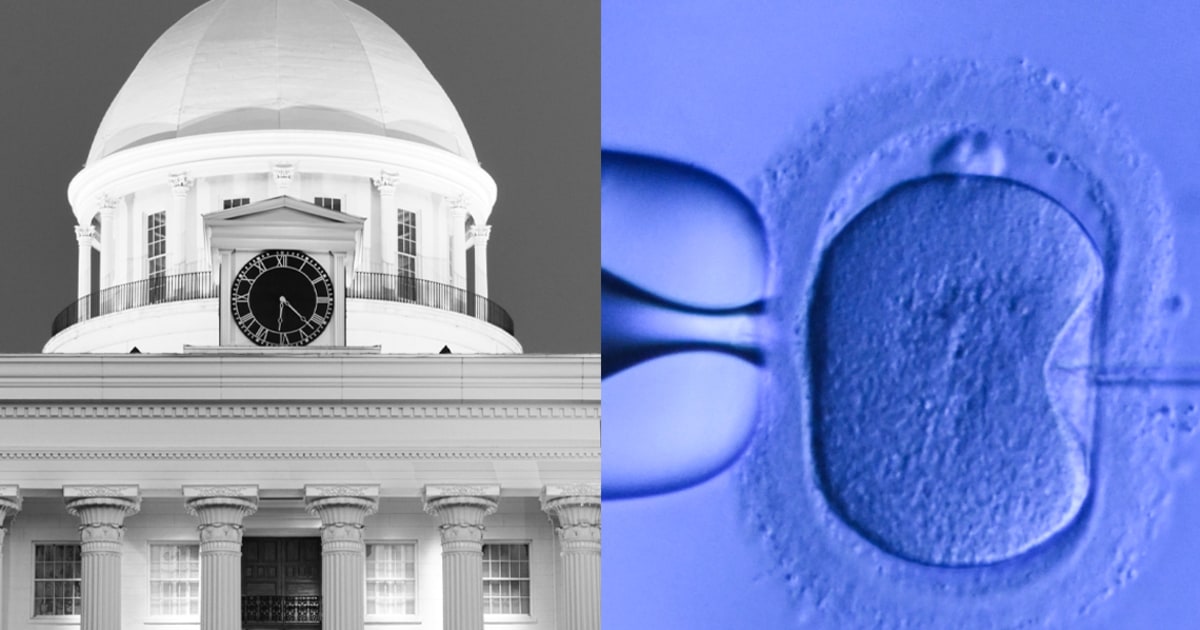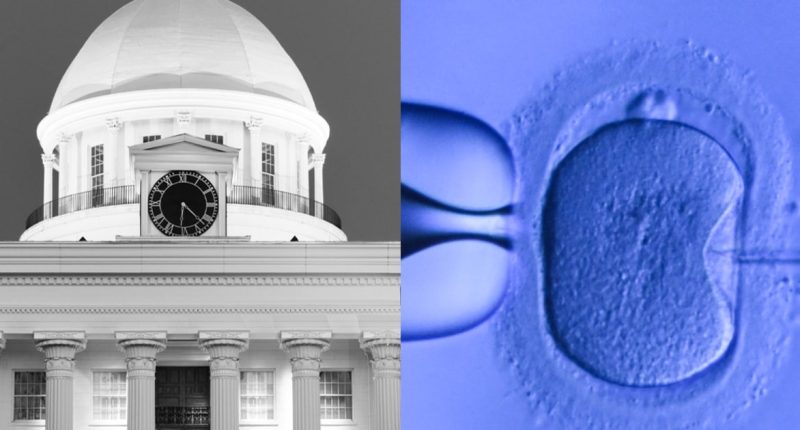
Alabama lawmakers are set to vote Wednesday afternoon on a finalized Republican-proposed bill intended to protect in vitro fertilization, following weeks of backlash prompted by a controversial state Supreme Court ruling that embryos are considered children.
Barring any last-minute changes to the bill, both chambers of the Legislature are expected to overwhelmingly pass the bill. It would then be sent to Gov. Kay Ivey, a Republican, who has said she would sign it.
“We anticipate the IVF protections legislation to receive its final passage very soon and look forward to the governor signing it into law,” Ivey spokesperson Gina Maiola told NBC News Wednesday afternoon.
The legislation doesn’t define or clarify whether under state law frozen embryos created via IVF have the same rights as children. Rather, the narrowly tailored bill would protect doctors, clinics and other health care personnel who provide IVF treatment and services by offering such workers civil and criminal “immunity.”
The two identical bills in the state Senate and House “provide civil and criminal immunity for death or damage to an embryo to any individual or entity when providing or receiving services related to in vitro fertilization.”
They state that “no action, suit, or criminal prosecution for the damage to or death of an embryo shall be brought or maintained against any individual or entity when providing or receiving services related to in vitro fertilization.”
During debates in both chambers on Tuesday, lawmakers removed the term “goods” from the phrase “goods or services” from the bills, meaning that companies that provide items that are integral to the IVF process could still face civil suits — but not criminal prosecution — if their products are determined to damage or destroy embryos. The amended bills also cap the monetary awards in such suits.
Reproductive rights advocates have said providers of such goods could, most prominently, include the liquid solution that clinics use to help grow embryos.
Ahead of the vote, those groups slammed the bill in its current form, saying it failed to fully protect IVF care against the broader issues the ruling raised.
The bill “falls far short of what Alabamans want and need to access fertility care in their state without fear,” said Karla Torres, senior counsel at the Center for Reproductive Rights.
“Even on its face, this bill seeks to grant personhood to embryos, reinforcing the state Supreme Court’s extreme ruling recognizing embryos as children,” Torres said, adding that the legislation amounted to “backpedaling in the face of state and nationwide public outcry to allow politicians to save face.”
The votes Wednesday will follow multiple hearings over the past few weeks featuring hours of emotional and tense debate among lawmakers in the state, who, despite broad objections to the proposals, repeatedly voted overwhelmingly to continue advancing them.
During discussions last week about the bills, pro-reproductive rights Democrats joined anti-abortion Republicans in criticizing the bill for failing to explicitly clarify whether an embryo created by IVF should be treated as a child under Alabama law — the core question that arose from the state Supreme Court ruling this month.
Democrats had sought language clarifying that embryos were not children under the law, while some Republicans had argued for “personhood” language establishing that they were.
Democrats in the GOP-controlled Legislature had proposed their own bills that sought to explicitly clarify that embryos “outside of the uterus” are not “considered an unborn child,” though those bills didn’t advance.)
The bills’ Republican supporters have repeatedly said that the bill is imperfect and is intended as a quick fix designed to allow the several IVF clinics in the state that closed after the ruling to reopen without fear of criminal prosecution or civil suits for its employees.
Whether they will, however, remains unclear.
Ivey’s signature on the bill would — at least for now — cap weeks of national blowback prompted by the state Supreme Court’s decision that embryos created through in vitro fertilization are considered children.
Specifically, the Alabama Supreme Court found that people can be held legally responsible for destroying embryos under a state wrongful death law declaring that an unjustified or negligent act leading to a person’s death is a civil offense. As a result, providers of IVF services and embryo transport could have faced repercussions if embryos are discarded — a common part of the IVF process, because some embryos can have genetic abnormalities or may no longer be needed.
The February ruling immediately prompted several IVF clinics in the state to halt their services and gave rise to broader concerns that anti-reproductive rights conservatives elsewhere could go after the medical procedure.
The decision triggered a massive outcry against Republicans in Alabama and across the U.S. who have opposed reproductive rights — including calls from former President Donald Trump to address the issue “quickly” — sending lawmakers in the state scrambling to come up with a fix.
Source: | This article originally belongs to Nbcnews.com










